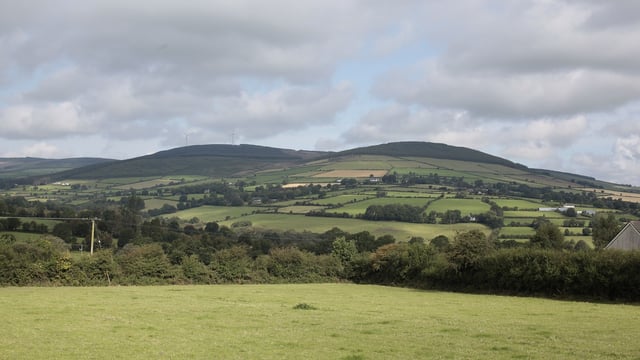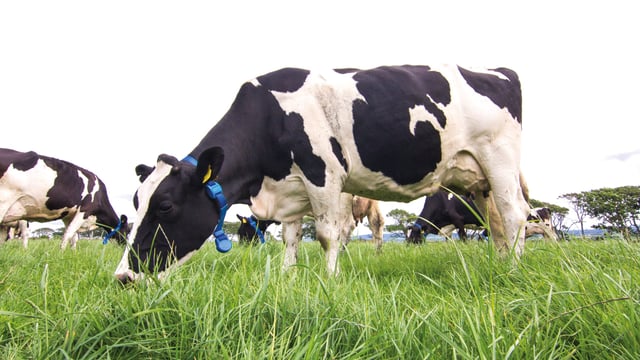Farmer who made false statement about cattle loses appeal
By Ryan Dunne
A 52-year-old Roscommon farmer who made a false statement to gardaí that his cattle were missing, when they were actually in his neighbour's shed has failed in a bid to overturn his conviction and €6,500 fine.
The Court of Appeal noted that Gerard Harrington submitted 81 grounds of appeal, of which he continued with 34 including a submission that hot weather during his trial meant the jury members were subjected to “oppressive conditions”.
Justice John Edwards said: “There was clearly sufficient evidence, viewed from the high water mark of the prosecution’s case, to allow the case to go to the jury and for a jury properly charged to convict upon it.
He therefore dismissed an appeal by Harrington.
Harrington, of Marian Road, Boyle, Roscommon, was convicted on July 26, 2021 at the Circuit Criminal Court in Tullamore of making a false report or statement tending to give rise to apprehension for the safety of persons or property.
He was sentenced by Judge Francis Comerford in October 2021 and fined €6,500.
The background to the case is that in October 2015, the Harrington reported to gardaí that 10 of his cattle were missing and gave details of the breed, tag number and value of each.
After making enquiries, gardaí were led to a shed at Breedogue, Roscommon, where they found a number of cattle, six of which had tag numbers matching those reported missing.
Gardaí spoke to the owner of the shed, a cattle farmer whose land adjoined Harrington's.
The shed owner gave evidence that his own cattle had broken out and were later located in a neighbour’s field, mixed in with between seven and 10 of Harrington's cattle.
This farmer brought the cattle to the shed, later meeting Harrington and making him aware of the location of the cattle belonging to him.
As Harrington had been made aware of the location of some of his cattle prior to making his statement, gardaí advised him that he was suspected of making a false statement.
In the Court of Appeal yesterday (Thursday, May 16) Justice Edwards said that Harrington had submitted 81 grounds of appeal, but that a great many of these complaints “appeared on their face to be patently misconceived”.
He said that Harrington subsequently continued with 34 grounds of appeal.
The judge added that Harrington complained that the trial judge in 2021 erred in ruling admissible a garda interview, with his legal counsel submitting that Harrington had been “inveigled” to attend the garda station in a manner that prevented him from having the opportunity to get legal advice.
“There was not a scintilla of evidence to support the suggestion that the appellant [Harrington] had been tricked or trapped in any way,” Justice Edwards said.
He said that the man’s defence had submitted that the trial judge had been wrong not to discharge the jury after a garda witness made reference to a memo of interview that was redacted during the trial.
However, as the trial judge subsequently gave supplementary instructions to the jury on this matter, he said that the Court of Appeal was “completely satisfied that the trial judge dealt appropriately with this issue”.
“In our view, it would have been a disproportionate response to discharge the jury,” Justice Edwards stated.
Harrington also submitted that the trial judge erred in permitting the prosecution to mention certain matters that were prejudicial to him, including references to a previous trial that resulted in the jury disagreeing.
Justice Edwards said that the prosecution had been seeking to put to Harrington a previous inconsistent statement and there was no inhibition in law to prevent them doing this.
He said the court was also rejecting a submission by Harrington that the jury should have been discharged as they could not hear a part of the oral evidence.
The court also rejected a submission from him that the hot weather during the trial meant the jury members were subjected to “oppressive conditions”.
Justice Edwards said that the trial took place during Covid-19 restrictions, when social distancing meant that the jury were not seated together but dispersed throughout the courtroom.
He said there was no indication that the jury had missed any of the evidence, nor had they requested that any of the evidence be played back to them.
The court also dismissed a complaint by the appellant that the charge against him was “vague and inchoate”, with Justice Edwards pointing out that no challenge was made during the trial.
Concerning the alleged oppression of the jury in hot weather, Justice Edwards said that the only complaints during the trial emanated from the defence, while the jury made no complaint.
He also dismissed a submission about the alleged failure by the trial judge to summarise the defence case in his charge to the jury, saying that no requisition was raised concerning this at the time.
Justice Edwards said that the trial judge made a detailed charge to the jury and thoroughly reviewed Harrington's evidence.
“There was clearly sufficient evidence, viewed from the high water mark of the prosecution’s case, to allow the case to go to the jury and for a jury properly charged to convict upon it,” Justice Edwards stated.
Concluding that the trial was satisfactory and that the verdict was safe, the court dismissed the appeal.





